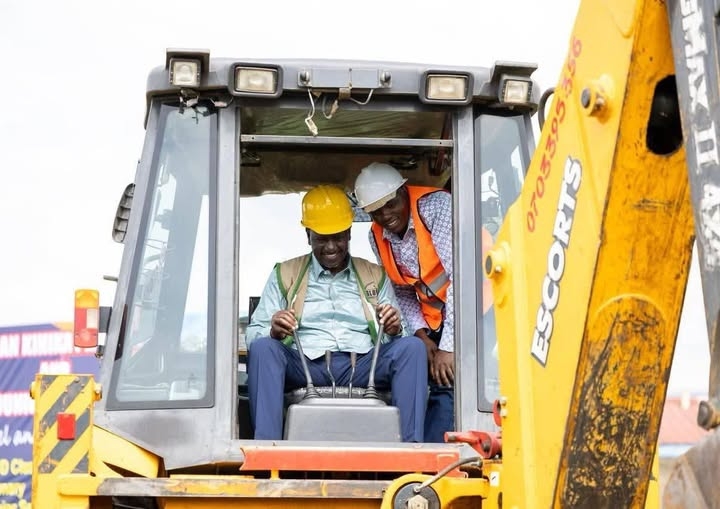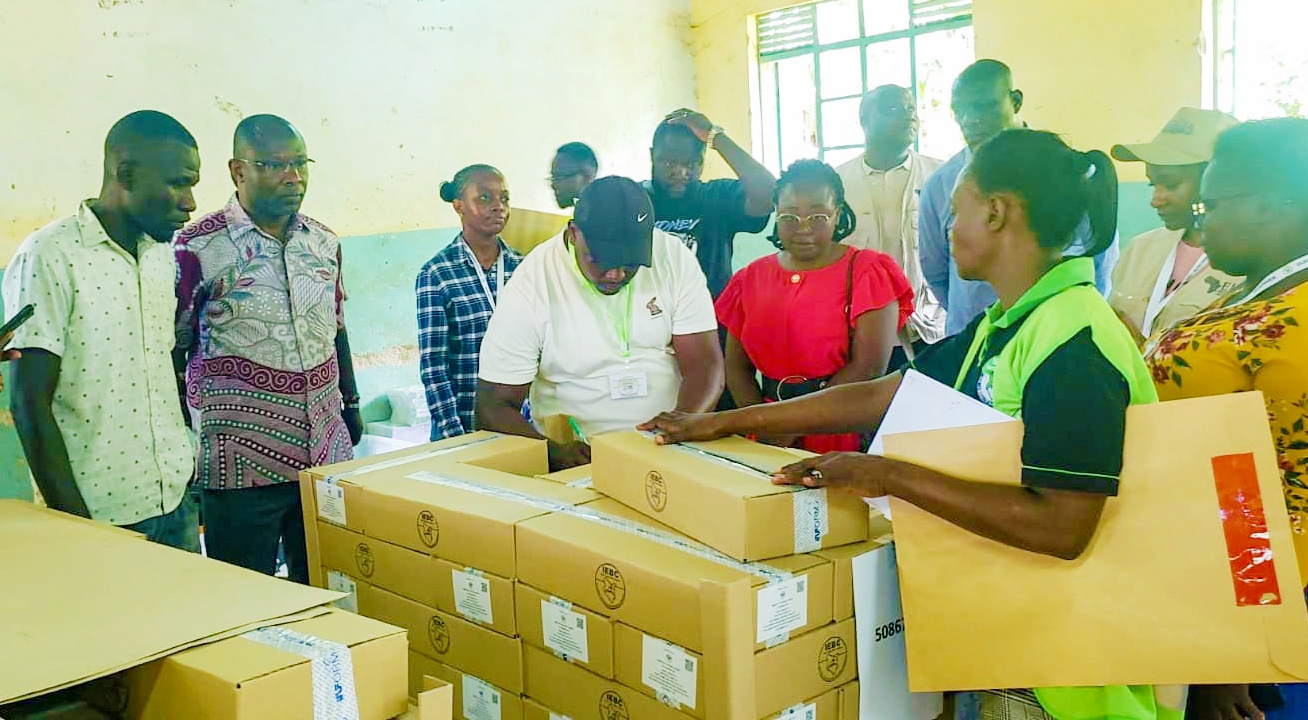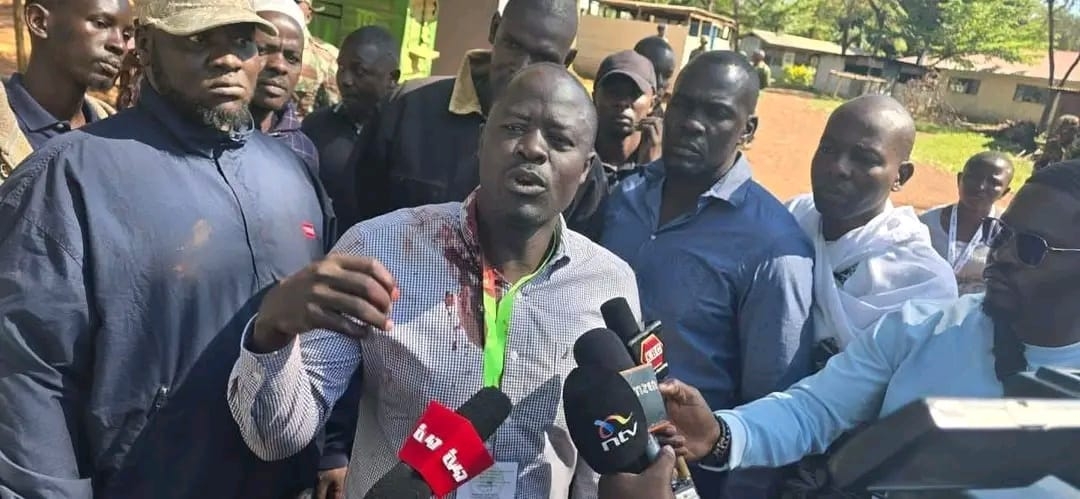It is a Monday midmorning in Mukuru, one of the sprawling slums in Nairobi City. The roads leading to the slum are congested with people from all works of life, trying to earn a living.
The Mukuru slum comprises about 30 villages and is home to more than 700,000 people. Here at the slum, disposal of waste along the road is normal. When it rains, the waste clogs water drainage systems, and the results can be devastating.
When there were floods in March, dwellers in the city’s sprawling slums of Mukuru Kwa Njenga and Mukuru Kwa Reuben were among the worst hit.
In one briefing at the time, the Kenya Red Cross reported that about 1,180 households had been affected.
Sanitation within the slum is also in a sorry state. Residents live a life with limited access to water, schools, roads and even toilets.
Nearly half a million people are squeezed into 100,000 households made of rusted corrugated iron. It is common to find young people loitering out and about without a job.
To tackle some of these challenges, a new project that uses black soldier flies to biologically tackle the waste problem has been initiated.
On Monday, the Global Centre on Adaptation (GCA) inaugurated 12 Black Soldier Fly Units in Mukuru to help drive climate resilience and provide young people with jobs.
GCA chief executive Prof Patrick Verkooijen said the initiative is important for Africa’s adaptation to climate change:
"The Black Soldier Fly initiative in Mukuru exemplifies the power of locally led climate solutions," he said.
“By turning waste into resources and empowering youth with skills, we are addressing multiple challenges head-on, from flood mitigation to food security. This is exactly the kind of scalable, innovative project that we are mobilising more resources for to accelerate adaptation across Africa.”
We are going to create a lot of community awareness through these youths on how people can deal with their waste and even segregate organic, recyclable waste that can be processed through these units
HOW IT WORKS
Black soldier flies process organic waste into valuable by-products: protein-rich larvae for livestock feed and nutrient-rich fertiliser. This reduces landfill pressure and mitigates flash flooding by preventing waste blockages in drainage systems.
The initiative also promotes sustainability by reducing reliance on traditional waste disposal methods like landfilling or incineration, contributing to greenhouse gas emissions and environmental degradation.
The units are expected to process three tonnes of organic waste per cycle, contributing significantly to climate resilience efforts in the region.
The Black Soldier Fly units are part of a broader community-driven waste management strategy linked to the Mukuru People’s Adaptation Plan, which aims to enhance resilience in a settlement frequently impacted by seasonal flooding.
The project builds on GCA's role as a transmission belt connecting international financial institutions with the technical expertise to address climate risks in urban informal settlements.
The initiative is undertaken through the Africa Adaptation Acceleration Programme in partnership with the African Development Bank.
The AAAP is a joint initiative by the African Development Bank and the Global Centre on Adaptation. It aims to mobilise $25 billion over five years to scale up climate adaptation in Africa.
Since its launch, the AAAP has integrated climate adaptation measures into more than $10 billion in investments, helping to build climate resilience for millions across the continent.
TRAINING PROGRAMME
Akiba Mashinani Trust deputy director Patrick Njoroge said the youth managing the units underwent a training programme to gain the skills required to manage Black Soldier farming as a method of dealing with organic waste.
“As we were doing inauguration for the units, we also awarded certificates to those youths who have completed their studies. The certificates are NITA-certified, so it is something recognised by the government,” Njoroge said.
Some 100 youths have been trained to manage the 12 Black Soldier Fly Units that have been constructed in Mukuru. Plans are underway to train more youth.
The units are being done in three informal settlements: Mukuru Kwa Njenga, Kwa Reuben and Viwandani.
Njoroge said one of the biggest problems in the area is waste.
“We researched to be able to understand the amount of waste generated per household here,” Njoroge said.
“Through the study, we found out that 72 per cent of the waste generated from the household is organic and 22 per cent is recyclable, while the rest is toxic.”
Njoroge said the Black Soldier Fly units seek to deal with the organic waste generated by the households.
“Through the project, we are trying to see how, then, can we deal with organic waste as there is no waste management system in Mukuru,” he said.
They will also develop a waste management system that is anchored from the household levels to the units.
We come and segregate the waste. All the organic waste is processed, whereby harmful insects are killed. We then introduce black soldier fly, which then feeds on waste and we remain with excretion from larvae, which is organic fertiliser now
FEW DUMPSITES SOLUTION
One of the biggest challenges Nairobi is grappling with is dealing with waste.
There are few designated dumpsites, but Njoroge hopes that the waste does not have to be taken from Mukuru.
“We want to process it here and by doing so, we can deal with the issues of flooding. The community here identified waste as one of the contributors to flooding when it rains because it clogs the drainages,” he said.
The waste is also a contributor to the pollution of Ngong River. If waste is not handled properly, it releases methane gases, fuelling climate change.
Njoroge said the youth also get a livelihood as they process waste.
“Some of the products that come out of black soldier farming are larvae, which has rich protein that can be used for animal feeds, such as chicken, fish and pigs. We also have organic fertilisers,” he said.
Njoroge said the youth already have a market for the two products.
“Currently, they are selling 1kg of dry larvae at Sh120 and 1kg of organic fertilisers at Sh80.”
Njoroge said despite Kenya having laws guiding how waste should be handled, enforcement remains a challenge.
WHAT LAW SAYS
The Sustainable Waste Management Act 2022 was enacted on July 6, 2022. It has provisions that seek to promote sustainable waste management and improve the health of Kenyans. This is by ensuring a clean and healthy environment.
The law also seeks to reduce air, land, fresh water and marine pollution and ensure the effective delivery of waste services.
It calls for the segregation of waste to make sorting, recycling, reusing and reducing waste easier.
Under the law, those who fail to segregate waste at the household level will face a fine of Sh20,000. They could also be slapped with a six-month jail term or fine.
Under the new plan, five per cent of the waste will be incinerated, 30 per cent recycled and 60 per cent turned into manure. Only five per cent will go to landfills.
David Kinyanjui is among the youth who have been trained to manage the units. He said they have been picking waste from households.
“We come and segregate the waste. All the organic waste is processed, whereby harmful insects are killed. We then introduce black soldier fly, which then feeds on waste,” he said.
“Within 14 days, it will have consumed all the waste and we remain with excretion from larvae, which is organic fertiliser now.”
Kinyanjui said this fertiliser is very rich in potassium and calcium.
He added that the three-month training equipped them with skills in agribusiness.













